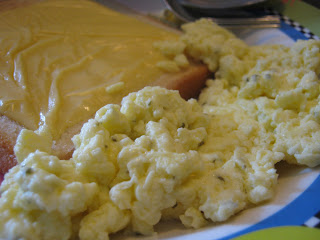I've been mulling over the Chinese issue for a while now. When
MM admitted publicly that he was wrong to assume that people could master Chinese with equal dexterity as English, I thought to myself, "Finally!"
Hordes of people will tell you that they've known this to be true for decades but nothing was done to help them. Just ask all my convent counterparts. Many of us only had tuition in Chinese, yet we continued to struggle with this subject. In school, I was always pretty good at my studies but I just couldn't master Chinese. We came to the conclusion rather quickly that you simply cannot become fluent in a language by swotting (we were all the jiak kantang types, our only exposure to Chinese was scolding from the characteristically fierce Chinese teacher for our total non-comprehension). Then came the inevitables - phobia, even extreme hatred, for the subject and the inadvertent sigh of relief when we finally passed the final compulsory exam for Chinese. No more Chinese!
Or so we thought. Sometime during the past two decades, China became an ecomonic powerhouse and there was a resurgent interest in all things Chinese, if only for pragmatic reasons. Suddenly, it was fashionable to be Chinese and in Singapore, more Chinese started realising the value of embracing their Chinese heritage.
In education, things changed too. The Chinese syllabus underwent several evolvements, slowly the focus shifted from the written to the spoken language, from mundane rote memorising to more interactive and relevant methods.
All this is great but you know what I found? Like me, my kids STILL struggle with Chinese. Despite all the changes in curriculum, the hard sell, the soft sell, my kids face the same problems I did 30 years ago. And this struggle has pushed them to the precipice of hating the language.
I thought long and hard about it and came to the conclusion that changing the Chinese curriculum is not enough to change the mindset of our kids. One of the biggest hurdles in my mind is the assessment approach, particularly in primary school. I find the issue less daunting in secondary school partly because the kids are more mature and also in secondary school, there is less pressure to ace Chinese. At the primary school level, for some inexplicable reason, instead of instilling the joys of learning and discovery, the kids are put through a rigorous channel aimed primarily at acing exams, culminating in the PSLE.
The PSLE is a strange animal. To do well in the PSLE, a child basically needs to ace or at least fare above average in every subject. There's no concession. You can't really do very well in one subject and hope to pull up bad performance in another subject, it just doesn't work that way. Because the scores are all in relation to others in the cohort, a bad grade in one subject completely drags your T-score down.
From where I'm standing, this is bad news for kids who struggle with Chinese. You see, unlike maths or science, I believe it's much more difficult to simply study your way into an A* for Chinese. In Lesley-Anne's GEP class last year, two very bright kids scored less than 245. Both have this in common - they are non-Chinese taking Chinese. It was the Chinese that pulled their scores down, despite having spent much more time on this subject than the other three put together.
I think this is such a shame and sends the wrong message. We should be applauding these kids for having the gumption to take up Chinese. Instead, we are basically penalising kids who for various reasons, their Chinese will never be on par as the Chinese nationals or those who speak Mandarin at home. There is another backlash - more and more parents, especially those who have been abroad, are trying to seek Chinese exemption for their kids for PSLE because they know it would be highly disadvantageous for their kids to sit for this dreaded exam. Our system is deterring them from even attempting to learn the language because unfortunately once you do, you will have to sit for the exam and God knows, your PSLE score can have such a great impact on your choice of schools and your future.
So here's my suggestion: if education authorities truly believe that Chinese cannot be "studied" so easily and want to promote the love of the language, then reduce its importance at the PSLE. Calculate the T-score based on either the four subjects OR the three subjects without Chinese, whichever is higher. The latter is what is currently being calculated for kids exempt from Chinese anyway so it's not new.
This system is fair for who can ace Chinese and for those who can't, without putting pressure either way. If the authorities are afraid that kids will then throw Chinese to the wind altogether, put a minimum requirement, ie you have to still pass Chinese. This is similar to the O level system. I think conversely, once the pressure to ace the exam is off, kids can focus on actually enjoying the language.
I think it could work - anyone from MOE listening?
 I was not a Star Wars fan growing up but I can see why it's every boy's fantasy. Flying, fighting machines, sleek robots, oozy, slimy creatures and of course, the fabulously cool light sabres.
I was not a Star Wars fan growing up but I can see why it's every boy's fantasy. Flying, fighting machines, sleek robots, oozy, slimy creatures and of course, the fabulously cool light sabres. A New Hope:
A New Hope: Some close ups of key characters:
Some close ups of key characters:

 Alamak, somebody needs to work on his spelling.
Alamak, somebody needs to work on his spelling.














































